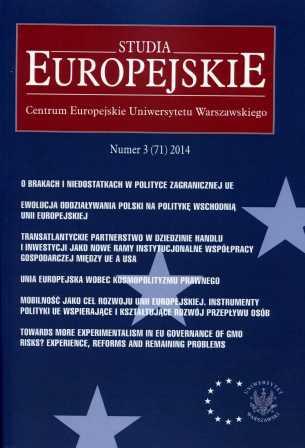Towards More Experimentalism in EU Governance of GMO Risks? Experience, Reforms and Remaining Problems
Towards More Experimentalism in EU Governance of GMO Risks? Experience, Reforms and Remaining Problems
Author(s): Patrycja Dąbrowska-KłosińskaSubject(s): Law, Constitution, Jurisprudence
Published by: Centrum Europejskie Uniwersytetu Warszawskiego
Keywords: GMO; European Union; Law
Summary/Abstract: The conclusions of this work on the GMO regime in the context of experimentalism identified the need for the revision of policy objectives in this fi eld and for an institutional choice between political bargaining and experimentalist measures. The first of the claims became visible in the recent reform of the policy-sector, where the EU went through a revision process marked by market experience, the input of lower-level units and peer-review exercises. The effect of this process is the redefinition of regulatory objectives in the proposed reform. The need for regulatory modifi cations also reinforced two central, experimentalist features of the EU internal regime, which are: (a) constant attempts made by policyactors to respond to GMO risks under conditions of uncertainty and in the light of experience; and (b) on-going recursive revision of goals and a refl ective approach to GMO policy.The evidence from the operation of the authorisation procedures over the last decade demon-strates that hierarchical decision-making, if accompanied by non-transparent, infl exible and non-participatory institutional practice, leads to further frustration of all actors and narrows the space for the emergence of deliberative practices. The democratic legitimacy of the decisions reached can also be questioned in view of deliberative ideals. There is a potential for the new regulatory framework, strengthened by the proposed reforms, to function in a more experimentalist way, on the condition that the involved EU institutions will be open to modifying their practices in a more stable manner and that the Member States agree on the entry into force of the reforms. The lack of successful co-operation in the approval procedures seems to be linked to inadequate institutional practices, apart from political disagreements. The latter cannot be removed in their entirety, but in order to ensure better policy outcomes there is a need to improve the institutional practices of the EFSA and the Commission in the first place.
Journal: Studia Europejskie
- Issue Year: 18/2014
- Issue No: 3 (71)
- Page Range: 115-141
- Page Count: 27

